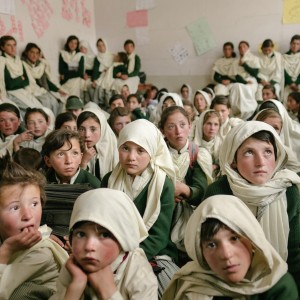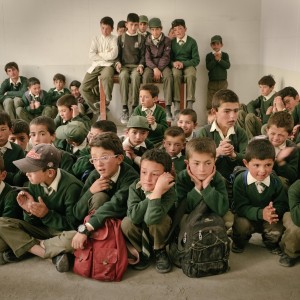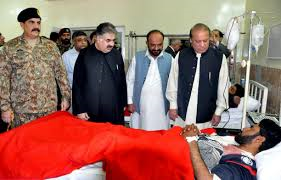The American political establishment was reeling from shock on Wednesday as leaders in both parties began coming to grips with four years of President Donald J. Trump in the White House, a once-unimaginable scenario that has now plunged the United States and its allies and adversaries into a period of unprecedented uncertainty about the policies and impact of Mr. Trump.
President Obama, a longtime foe of Mr. Trump, and Hillary Clinton, the president-elect’s vanquished opponent, held separate news conferences to urge people to put aside whatever bruised feelings and disappointment they have and come together for the sake of the republic, and for the good of Mr. Trump’s presidency.
Mr. Obama, addressing the nation from the Rose Garden on Wednesday, said he had called Mr. Trump with congratulations and to invite him to meet at the White House on Thursday to discuss a smooth transition to the Trump administration.
“We are all now rooting for his success in uniting and leading the country,” Mr. Obama said. “The peaceful transfer of power is one of the hallmarks of our democracy. And over the next few months we are going to show that to the world.”
Mrs. Clinton, in her first remarks to supporters after the election, said that she hoped that Mr. Trump “will be a successful president for all Americans,” and said she was “sorry that we did not win this election for the values we share and the vision we hold for our country.”
“This is painful, and it will be for a long time,” Mrs. Clinton said, standing beside her husband, former President Bill Clinton, in a tableau that underscored the end of a nearly 25-year era when the Clintons dominated American politics.
Noting that the country was “more deeply divided than we thought,” Mrs. Clinton added: “We must accept this result and look to the future. Donald Trump is going to be our president — we owe him an open mind and a chance to lead.”
While her speech largely dealt with politics, Mrs. Clinton choked back tears at times, and turned personal at one point.
“To all the little girls who are watching this,” she said, “never doubt that you are valuable and powerful and deserving of every chance and opportunity in the world to pursue and achieve your own dreams.”
For many millions of voters, a sense of excitement and even euphoria coursed from coast to coast as they celebrated the election of a true political outsider who had promised to reverse policies of the Obama administration and be a champion for “forgotten Americans.” But millions of others felt a sense of dread and even fear as they tried to fathom how Mr. Trump could win the presidency when so many polls suggested otherwise, and to prepare themselves for the consequences of a new leader who has no experience in government or world affairs.
Trump campaign advisers said on Wednesday that the president-elect was turning to assembling a cabinet and White House team and selecting a conservative nominee for the Supreme Court vacancy. The advisers said Mr. Trump was inclined to roll out a few cabinet nominations at a time, rather than kicking them off with one high-profile pick for a critical department like Treasury or State.
Among the candidates for cabinet secretaries and advisers are members of Mr. Trump’s inner circle, aides said, including Senator Jeff Sessions of Alabama, a crucial adviser on policy issues; Steven Mnuchin, a businessman who was Mr. Trump’s national finance chairman; Rudolph W. Giuliani, the former mayor of New York; Gov. Chris Christie of New Jersey; and Newt Gingrich, a former speaker of the House.
Mr. Trump also spent Wednesday morning receiving phone calls from world leaders, said the campaign advisers who spoke on the condition of anonymity to discuss the transition planning. The advisers declined to identify the leaders, though one said it would be unusual if the president-elect had not heard from allies like Britain and Germany.
Asked if President Vladimir V. Putin of Russia had spoken with Mr. Trump, who surprised many Americans by saying that Mr. Putin had been a stronger leader than President Obama, the aide said the two men had not been in touch.
Anxiety was particularly deep among Hispanics, African-Americans, Muslims, immigrants, women and others who had felt disparaged or demonized by Mr. Trump, who at times used harsh and racially charged language in ways that upended mainstream politics. The very idea that Mr. Trump had been endorsed by a Ku Klux Klan newspaper — even if he rejected it — symbolized the sense of shock that he would now lead a vibrantly diverse democracy.
Asked how they would feel about a Trump presidency, more than a third of Americans said they would be frightened, exit polls found. Among those who voted for Hillary Clinton, the feeling was almost unanimous and reflected a deep divide: 92 percent said Mr. Trump scared them.
Politicians also joined business leaders — as well as the many Americans with retirement and savings accounts — in keeping a nervous eye on the world financial markets in fear of the sort of backlash that wounded Britain after its vote in June to leave the European Union. While some business leaders worried about the nation’s sliding into recession, others were more hopeful that Mr. Trump’s proposals of tax cuts, infrastructure spending and relaxing of regulations would be welcomed by the financial markets, which stabilized after sharp declines overnight.
Political activity and reactions in both parties were in a surreal state of suspended animation as Republicans and Democrats began anticipating Mr. Trump’s moves. Paul D. Ryan, the speaker of the House, said at a news conference Wednesday morning that Mr. Trump had a “mandate” for his vision of government, including trying to repeal the Affordable Care Act, after his stunning upset victory over Mrs. Clinton.
Mr. Ryan described a United States under Mr. Trump as a different place than it has been, saying that the president-elect would be a champion of the many Americans who do not like the direction of the country and “don’t feel heard and don’t feel represented by the people in office.”
Mr. Ryan, who chose in October to stop campaigning for Mr. Trump after revelations about his past offensive language about women, said that he had “spoken with Donald twice in the last 18 hours” and that the president-elect “will lead a unified Republican government.”
“We talked about the work ahead of us, and the importance of bringing the nation together,” Mr. Ryan said at a news conference in his hometown, Janesville, Wis. “This needs to be a time of redemption, not a time of recrimination.”
Mr. Ryan could have been hinting at his own fate. There are a more than a few restless conservatives in Mr. Ryan’s conference in the House who had been agitating for the speaker’s ouster before the election because of his failure to fully embrace Mr. Trump. And whether that discontent will now die down is far from clear.
Other Republicans who made their reservations about Mr. Trump proudly known before the election tried to be gracious, though some sounded more skeptical than optimistic.
Senator Ben Sasse of Nebraska, who became a public face of the anti-Trump faction on Capitol Hill, said he and his family had asked God to steer Mr. Trump in the right direction. “We pray that he will lead wisely and faithfully keep his oath to a Constitution of limited government,” Mr. Sasse said in a statement. Then he promised to hold Mr. Trump to his word. “Starting today, I will do everything in my power to hold the president to his promises,” Mr. Sasse said.
Others conservatives seemed to welcome Mr. Trump as the means to an end that they could all agree on: the dismantling of the parts of the Obama legislative legacy that they found so egregious, particularly the Affordable Care Act and his executive actions on immigration.
“Americans voted for Republicans because of a promise to go to Washington to reverse our current course, and end the Washington cartel — a promise to drain the swamp,” said Senator Ted Cruz of Texas, a former Trump rival for the Republican nomination, adopting the slogan that Mr. Trump used as his closing argument to voters. “Now is the time to follow through on those words with action.”
Senator Rand Paul of Kentucky, another of Mr. Trump’s former primary rivals, even speculated that the reversal of Mr. Obama’s achievements would begin within the first month of a Trump administration.
“This is something I’m excited to do,” Mr. Paul said on MSNBC’s “Morning Joe.” “I think you’re going to find that we’re going to repeal a half dozen or so of regulations that are killing jobs and making us less competitive with the rest of the world.”
Democratic leaders were largely silent, refraining from making provocative statements on Twitter or elsewhere, as they waited to hear more from Mr. Trump. Senator Chuck Schumer of New York, who is expected to become the next Democratic minority leader in the Senate, and is one of the party’s toughest brawlers, issued a conciliatory statement noting that Mr. Trump had called him on Wednesday morning.
Elsewhere, the transition of power seemed to be unfolding in an orderly fashion. Word came from the Pentagon on Wednesday morning that Mr. Trump would be receiving the same classified intelligence briefings as the president. The defense secretary, Ashton B. Carter, issued a statement declaring that he was committed to an orderly passing of power to the next commander in chief.














